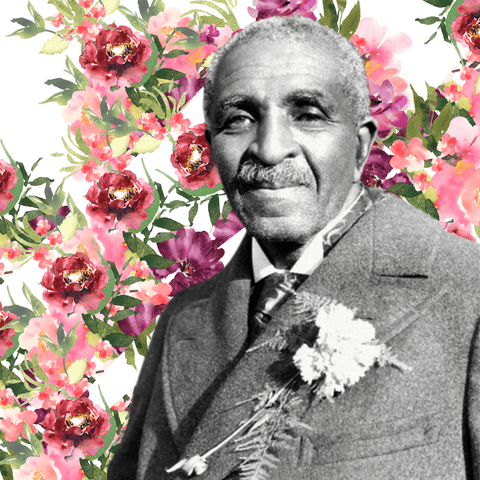George Washington Carver made a significant and lasting impact on black history, and his educational accomplishments were significant in advancing agriculture, science, and education. Carver was born into slavery in Missouri in 1864, and after the Civil War, his family moved to Fort Scott, Kansas. After the death of his parents when he was just 11 years old, he was adopted by neighbors who recognized his intelligence and encouraged him to pursue an education. In 1890, Carver graduated from the Iowa State College of Agriculture and became the first African American to earn a Bachelor of Science degree.
Carver became a professor and director of the Agriculture Department at Tuskegee Institute, now known as Tuskegee University in Alabama. In addition to teaching and conducting research, Carver was a vocal advocate for the acceptance of scientific methods of farming to combat soil depletion. His efforts to shift from cotton-based agriculture to more sustainable and diverse practices helped improve the soil and the fortune of small-scale black farmers. Carver is also credited with inventing over 300 products made from peanuts, such as peanut butter, paper, ink, and soap.
Carver's educational contributions extended beyond university lectures. He believed in teaching people, especially farmers, to use natural resources efficiently and sustainably. So he started the "Carver Clubs" to spread the knowledge of scientific farming practices, a movement that spread far beyond the walls of Tuskegee Institute.
Carver was also a prolific inventor and innovator, and he is credited with inventing over 300 products made of peanuts and sweet potatoes. He was an advocate for helping African Americans gain financial independence, and his inventions helped to create numerous jobs, as well as provide needed agricultural products.
Carver's legacy is still celebrated to this day. He was a pioneer in agricultural science and in helping African Americans achieve financial success despite the racial barriers and inequalities they faced during his lifetime. He is honored as a national figure, with a monument dedicated to him at the National Mall in Washington D.C.; the United States even produced a postage stamp in his honor in 1948.
Conclusion
George Washington Carver is a pillar of African American history who used education and keen intelligence to make agricultural and environmental advances to benefit the nation. He overcame early hardships, including slavery, racism, and poverty, to become the first African American to earn a degree from Iowa State University. He accomplished much in his lifetime, including the invention of the Carver Method, the promotion of diversified farming, and the development of numerous valuable products from sweet potatoes, peanuts, and other crops. Carver's hard work and perseverance are inspiring and a reminder that one person can make a difference in the world. His accomplishments have influenced many aspects of American history, and his legacy lives on. His example of courage and determination should be remembered and celebrated by all.





Comments (0)
There are no comments for this article. Be the first one to leave a message!